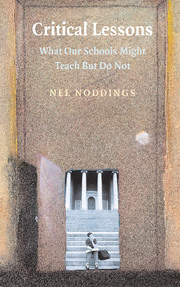5 - Parenting
Published online by Cambridge University Press: 05 June 2012
Summary
You know more than you think you do.
Benjamin SpockThou shalt be on the child's side.
A. S. NeillNo task is more challenging and potentially more rewarding than parenting. Few of us use academic mathematics as adults, but most of us become parents. Yet, our schools require all students to study algebra and geometry, but they rarely offer serious courses – or even units of study – on parenting. The assumption has long been that young people will learn how to be parents at home – from their own parents.
There is a troubling question built into this assumption. We know that academic success is highly correlated with socioeconomic status, and it may be that certain parenting practices are also related to, or affected by, that status. This is not to say that rich parents love their children more than poor parents do; that is obviously untrue. It is not to say, either, that there is something wrong with poor parents or with those from cultural minorities. It is not a matter of blame. Further, bad parenting occurs in all socioeconomic groups, ethnicities, races, religions, and communities. But some parenting practices seem to be more readily available to the economically and educationally well off and also seem to be more effective for life in a liberal democracy; these practices could be taught and critiqued.
- Type
- Chapter
- Information
- Critical LessonsWhat our Schools Should Teach, pp. 119 - 146Publisher: Cambridge University PressPrint publication year: 2006



